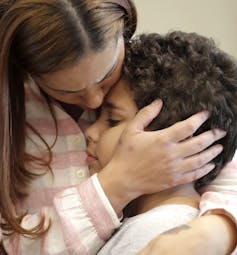Why the U.S. detainment of asylum-seekers and other migrants is a disgrace: U of T expert

Published: July 16, 2018
The Donald Trump administration is continuing its “” approach to seeking asylum at the southern border of the United States.
Despite no evidence that the approach , the administration is prioritizing the use of or in their attack.
As a detention expert, I argue that we must not lose sight of how the administration is steadily expanding its detention arsenal under the cover of massive changes to its immigration and asylum architecture.
The mind boggles at the scale and speed of the rollbacks to accessing asylum, humanitarian protection and residence rights, among them:
- Withdrawing “” protections against deportation for 200,000 Salvadorans, plus Haitians, Sudanese and Nicaraguans, living in the United States.
- Intervening to undermine for women and others fleeing persecution at the hands of non-state individuals, including abusive spouses.
- Stepping up across the U.S.-Mexico border.
- Turning back asylum-seekers at .
- Hollowing out protections for children not at immediate risk of human trafficking for sexual, forced labour or other forms of exploitation.
- Prosecuting to bring their children to the U.S.
- Prosecuting who enters the U.S. without preauthorization.
The most shocking of these recent changes is perhaps the Trump administration’s order to children from their parents at the U.S.-Mexico border. Again, this action was enabled through expanding the uses – and moral and legal thresholds – of immigration detention.
Long-lasting trauma
How did this work? U.S. Customs and Border Patrol agents arrested the parents and transferred them to detention centres operated by Immigration and Customs Enforcement (I.C.E.).
Their approximately 3,000 kids became “unaccompanied minors” in the custody of the already Department of Health and Human Services’ Office of Refugee Resettlement. This ripping apart and subsequent detention of family members in separate facilities has caused trauma , we are only beginning to grasp. Psychologists are flagging the lifelong that has now infected these children's minds and bodies.
White House Chief of Staff John Kelly memorably waved off the outcry and moral culpability for this pointless and needless trauma: The parent-less , toddlers, children and youth would .”
The HHS has found the “whatever” for these asylum-seeking children: facilities ranging from to blacked-out floors of , a , a Texan , and plans to detain children and families on , among them.

The breadth of the Trump administration’s recent expansion of its detention architecture is stunning: The federal government is operating 100 detention sites with or without the of municipalities.
Detention has flown under the public radar for too long. Warnings and protests from , and have not been widely heeded.
The U.S. is flouting international and domestic rules on detention. It engages in and adults in detention and prisons, and won’t reunite all of the – those under five years old – with their parents outside of detention.
The American immigration detention system must be called what it is: , , and with a dysfunctional but financially profitable . The system is designed not to administer asylum claims, but to punish and even terrorize people attempting to realize their rights.
Pilot projects show that asylum-seekers with proper legal, social, health and other supports will appear for their court hearings; there is no need to detain them or, as we do in Canada too, shackle them with remotely controlled surveillance tools.
Let us not forget that the Trump administration ended the , an alternative that would have kept families together, and for less money.
The Trump administration is now working to exploit a legal loophole to keep children and their parents in detention together past the 20-day limit set by . They are asking for and offering deportation to parents as the alternative.
Under cover of massive curtailment of protections extended to asylum-seekers and other migrants, the Trump administration is trying to normalize detention for children and adults alike, a truly reprehensible agenda.
Stephanie J Silverman is an adjunct professor at the ∫¨–þ≤ð¥´√Ω.
This article was originally published on . Read the .
![]()



